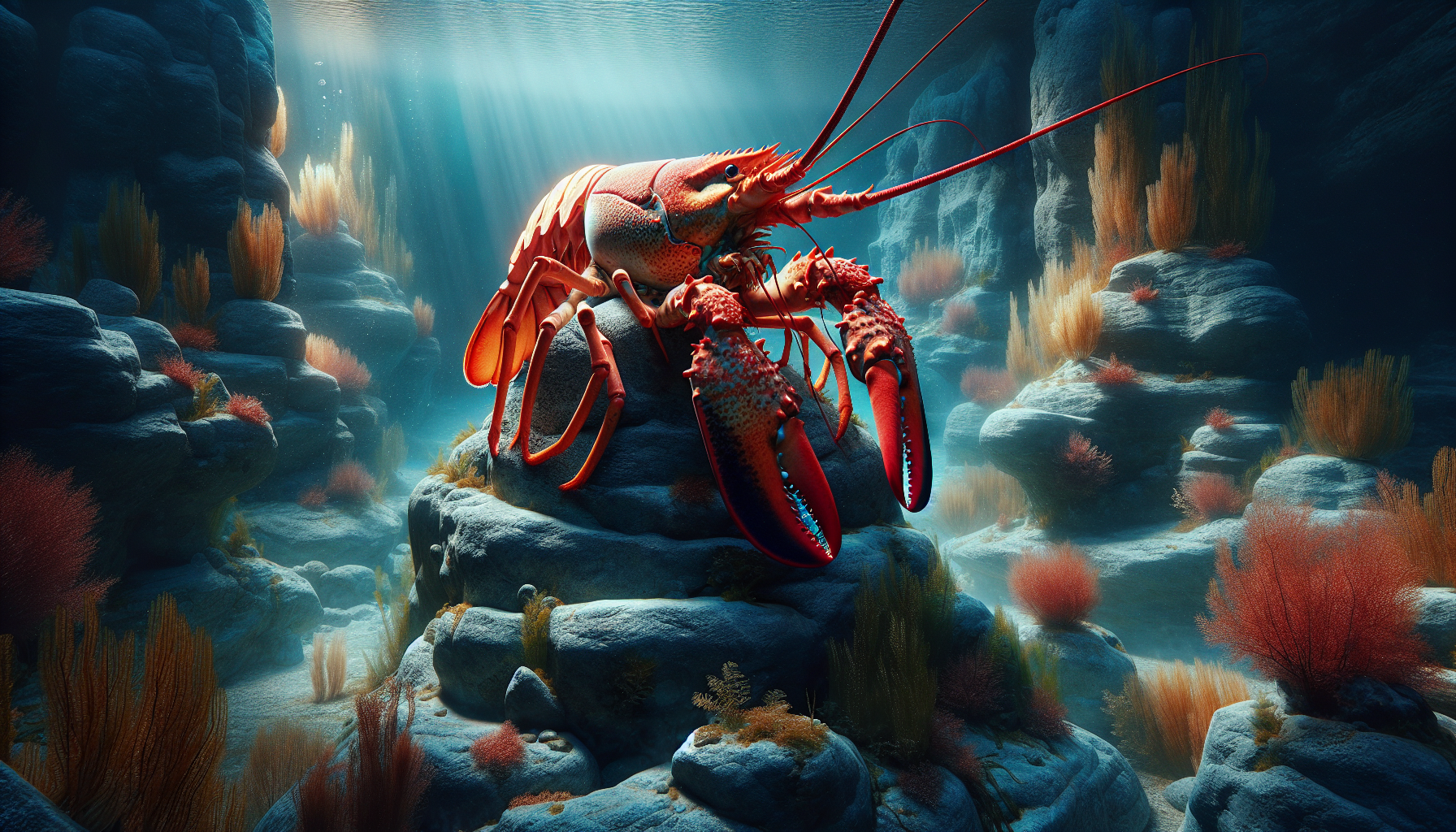Imagine if you could remain youthful, energetic, and healthy all your life. No bone aches, no arthritis, the risk of diseases eliminated.
Sounds too good to be true, right?
Well, not if you're a lobster!
Let us delve into the deep-sea secrecies of these intriguing marine crustaceans. A creature not only famous for ending up on dinner plates but also for an extraordinary life cycle.
Lobsters, unlike their terrestrial counterparts, seemingly enjoy an eternal youth, sidestepping the common attributes of old age that sap humans of vigor and vitality.
In the vast azure of the ocean, the clock ticks differently for these aquatic beings.
Here's more - they don't merely bypass geriatric frailties; lobsters seem to gain strength with age, becoming more fertile and robust as time laps along.
But how do they manage to defy traditional aging norms, seemingly unscathed by the ruthless erosion of time?
In this post, we will take a deep dive into the paradoxical world of lobsters, analyzing their unique life cycles and pondering scientific studies.
We will bring you face to face with the stunning biological mechanisms that render these crustaceans ageless.
We'll also explore the secret to their seeming immortality and discuss the implications for human health and longevity.
Can we uncover clues within these fascinating crustaceans that might help us unravel the riddles of aging?
Could the lobster's extraordinary life cycle offer potential breakthroughs in human health and longevity?
How Lobsters Achieve Antiquity: A Biological Perspective
It's believed that lobsters sport the colors of eternal youth - at least biologically speaking - due to their unique ability to endlessly regenerate their cells.
This allows their existence to perpetuate indefinitely.
But the question that inevitably piques our curious minds is:
"How exactly do lobsters pull off this seemingly fantastical feat?"
To comprehend the biological wizardry lobsters employ to flex their immortality muscles, we first need to understand what usually restricts the life of other animals.
You see, life's ticking clock is subjected to an entity called telomeres.
These are protective caps located at the endpoints of chromosomes.
With each cellular division, these telomeres ceaselessly shorten until they can't shrink any further. This signals an end to the cell's life and usually leads to the organism's decay and eventual demise.
However, lobsters secrete an enzyme called telomerase throughout their lifetime that counters this cellular wear and tear by continuously renewing the telomeres.
This makes them masters of defying age-related degeneration and diseases.
Then we have another aspect - the constant moulting pattern.
Lobsters regularly shed their shell and grow a new one as they continue to expand. This means they're not just confined to an individual shell but can regenerate a whole new structure that suits better to their growing body.
This makes lobsters different from other crustaceans who can find themselves stuck with a single shell after a certain point.
Lobsters also differ from humans and other animals when it comes to reproduction.
Their reproductive capability doesn't decline with age. In fact, females can carry eggs throughout their lives and even continue to produce more eggs as they get older.
This feature elevates the lobster's survival strategies, strengthening its species' persistence in natural habitats.
While these attributes are impressive, they're not entirely unique to lobsters. Some birds and mammals also produce the telomerase enzyme but not to the extent that lobsters do.
It's the combination of these traits, packaged with an exceptional immune system, which allows the lobster to excel in longevity.
When we dive deeper into the cellular mechanisms of the lobster, we find a complex and finely tuned system working relentlessly to fend off the threats of time and existence.
It's fascinating to ponder about such alien-like capabilities lurking beneath the dark waters, resting in the shells of a species so close to home!
As we leave you with this nugget of nautical knowledge, here's a compelling question to ponder:
If science could adopt the lobster's splendid biological methodology, how might this reshape our understanding of aging and our approach to longevity in human lives?

